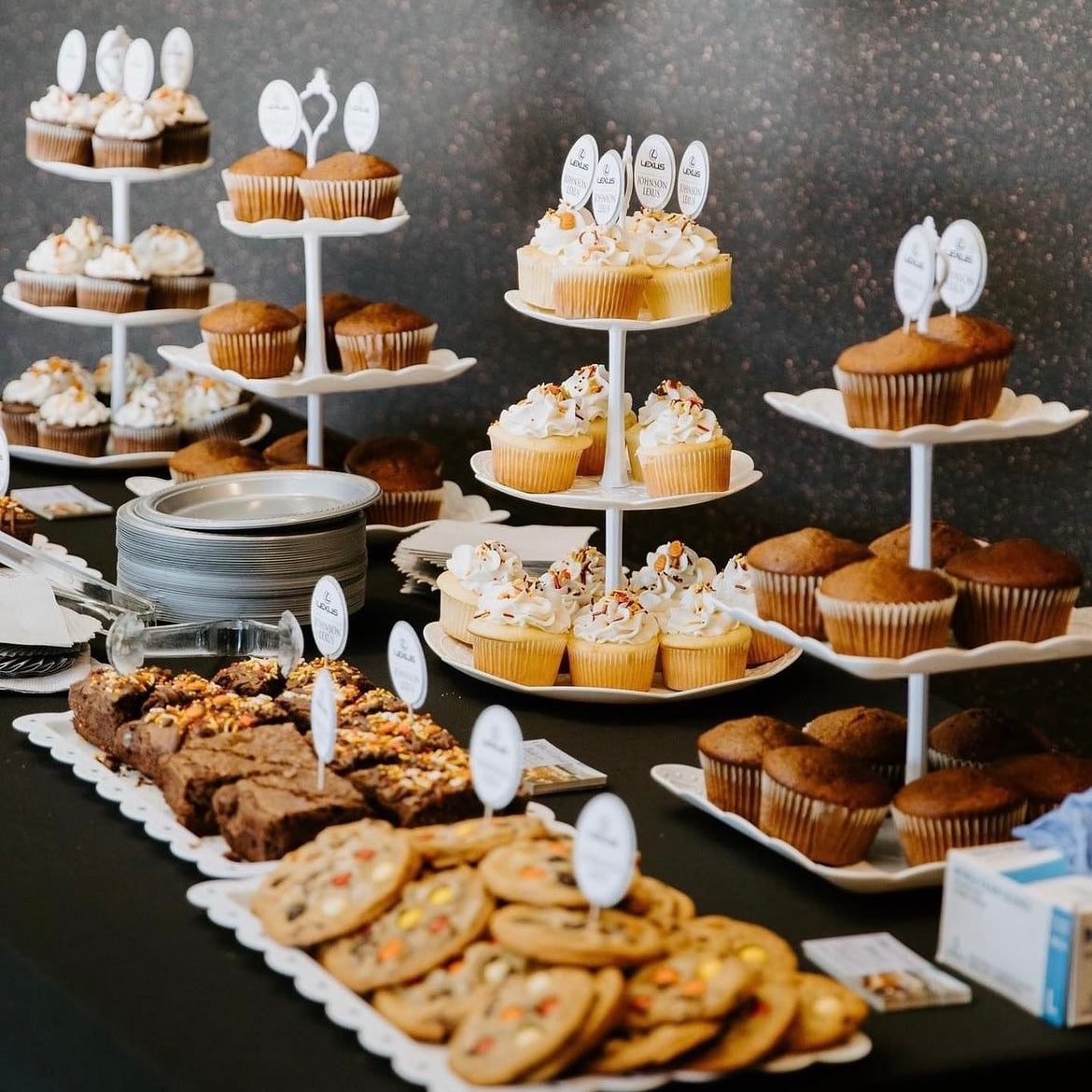Delicious Options in Finger Food Catering Maddington for All Ages
Wiki Article
Comprehending the Art of Pastry Shop Products: From Fresh Baked Breads to Irresistible Pastries and Finger Foods
The complex art of pastry shop items encompasses a range of techniques and components that change standard parts into culinary delights. From the scientific research behind the perfect loaf of bread, where fermentation and gluten development play critical functions, to the skill needed for developing split breads, each facet reveals a compelling narrative of craftsmanship. Additionally, the adaptability of finger foods highlights just how taste and appearance can be skillfully incorporated to involve varied preference choices. As we discover these components, one might ask yourself: what underlying concepts regulate the success of these cherished developments?The Scientific Research of Bread Making
At the heart of every loaf of bread exists an interesting interaction of chemistry and biology. The procedure of bread making begins with the combination of flour, yeast, salt, and water-- each ingredient playing a vital role in the final item.
Yeast, a living organism, ferments the sugars existing in the flour, generating carbon dioxide and alcohol at the same time. The co2 gas creates bubbles in the dough, triggering it to climb and create a light texture. The temperature and moisture throughout fermentation considerably influence yeast task and, subsequently, the bread's flavor and texture.

Learning Bread Strategies
Exactly how can one accomplish the delicate equilibrium of texture and taste that specifies extraordinary bread? Understanding bread strategies calls for a deep understanding of active ingredients, approaches, and the science behind them. Basic to this craft is the choice of top notch ingredients-- flour, butter, sugar, and eggs-- each playing a vital function in the end product's taste and texture.The strategy of lamination, which involves folding layers of dough and butter, develops the preferred flakiness in breads like croissants and smoke pastry. Precision in temperature level is important, as butter should remain chilly to make sure ideal layers. Correct blending approaches, such as the creaming method for cakes, make certain also consolidation of air and fat, resulting in a light and airy crumb.
Moreover, maintaining the right moisture levels throughout cooking can dramatically impact the end result, ensuring that breads rise properly and attain that golden-brown coating. The art of pastry additionally demands patience and practice; each effort improves one's skill and understanding of the elaborate equilibrium called for to create alluring pastries that delight the detects. Proficiency in these techniques ultimately identifies a knowledgeable pastry chef from an amateur.
Kinds Of Finger Foods
The globe of cooking thrills expands beyond breads to incorporate a large variety of finger foods, which are celebrated for their convenience and versatility. These bite-sized treats are best for celebrations, providing an array of tastes and structures that provide to diverse tastes.
On the sweeter side, bite-sized cupcakes and miniature tarts offer a delightful surface to any type of dish, interesting those with a sweet tooth. Furthermore, cheese and charcuterie boards work as this contact form an advanced option, permitting visitors to tailor their attacks with an assortment of meats, cheeses, fruits, and nuts.
Taste Profiles in Baking
Baking is an elaborate dance of flavor profiles that combines pleasant, tasty, and umami notes to create an unified experience for the taste. Comprehending these accounts is vital for bakers looking for to raise their productions.Active ingredients such as chocolate and sugar introduce intricate wonderful notes that can either control or match various other flavors. Components like seasonings, cheeses, and herbs can transform a straightforward dough into a complex flavor experience.
Umami, often overlooked in baking, plays a substantial function in improving flavors. Components such as aged cheeses, fermented items, or even specific nuts add to a mouthwatering deepness that enhances general preference.
Additionally, the interaction of level of acidity from ingredients like buttermilk or citrus passion can lighten up flavors, using a revitalizing counterpoint to sweetness. By thoughtfully incorporating these taste profiles, bakers can craft products that resonate with varied tastes, creating an extraordinary cooking experience. Inevitably, mastering flavor profiles is vital to innovation in the world of cooking.
Crucial Baking Tools and Ingredients
Understanding taste accounts in cooking sets the stage for selecting the right tools and active ingredients that promote the development of outstanding baked products. A trustworthy collection of baking pans-- such as sheet frying pans, loaf pans, and cake pans-- is crucial for attaining wanted shapes and textures.Flour serves as the foundation of many dishes; choosing the appropriate type-- be it all-purpose, pastry, or bread flour-- can significantly influence the outcome. Cooking powder and cooking soda are crucial for producing lift in cakes and breads.
Furthermore, including flavor boosters like vanilla remove, spices, and citrus passion can boost your creations. By making sure accessibility to these fundamental tools and active ingredients, bakers can confidently start their cooking trip, crafting a diverse range of wonderful baked items.
Conclusion
Finally, the art of pastry shop products includes an extensive understanding of both innovative methods and clinical concepts. Proficiency in bread production, bread preparation, and finger food presentation reveals the elaborate connections in between active ingredients and procedures. Furthermore, exploring diverse flavor profiles enriches the baking view publisher site experience, while important tools and components offer the foundation for success. Inevitably, the captivating globe of cooking prospers on the harmonious interplay of science and creativity, resulting in a myriad of fascinating cooking developments.Exactly how can one accomplish the delicate equilibrium of structure and flavor that specifies outstanding pastry? Basic to this craft is the choice of premium ingredients-- flour, butter, sugar, and eggs-- each playing an essential duty in the last product's anchor taste and texture.

Recognizing taste accounts in baking sets the stage for choosing the right devices and active ingredients that promote the production of exceptional baked goods. Exploring diverse flavor profiles enriches the baking experience, while important tools and ingredients provide the foundation for success.
Report this wiki page